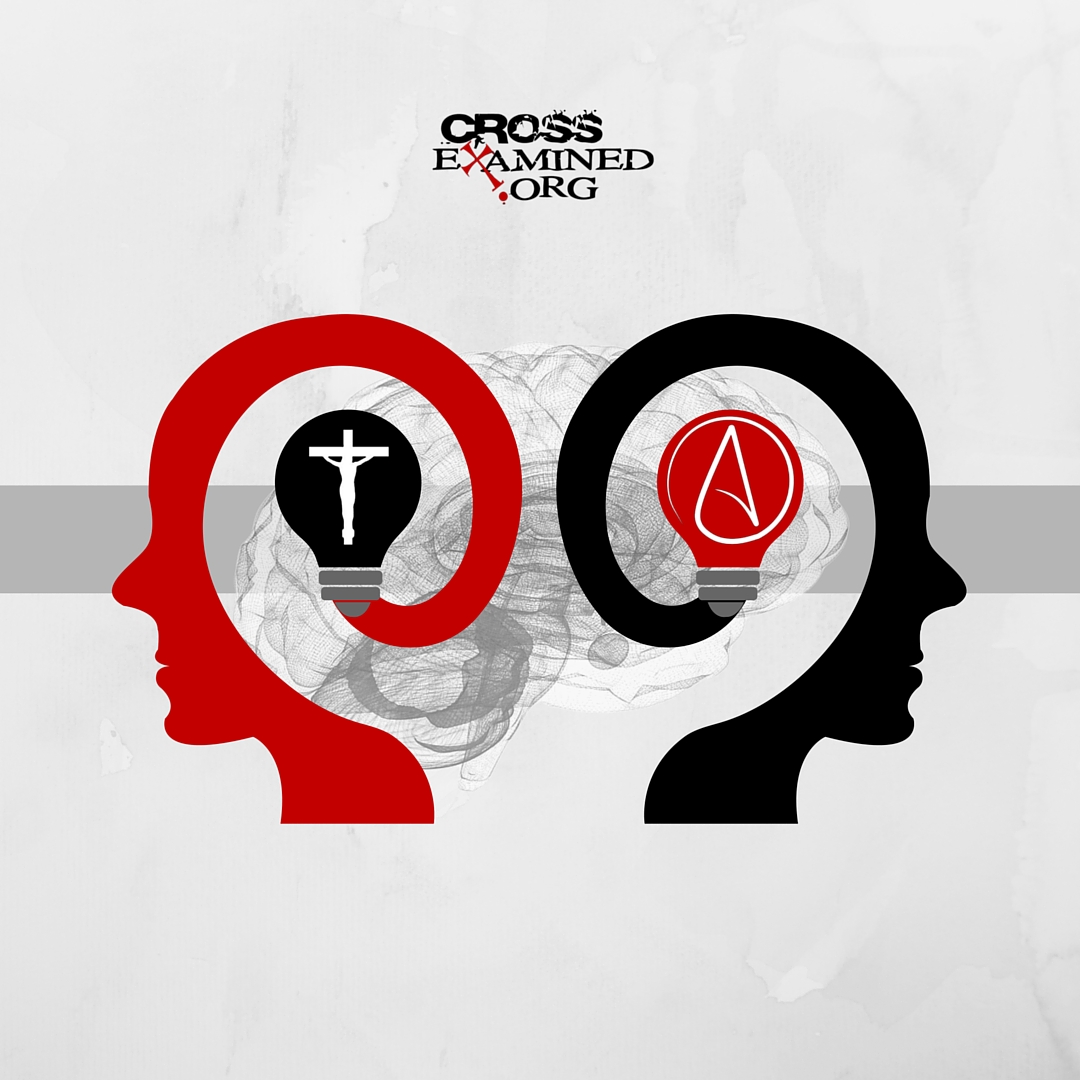Are Christians Less Intelligent Than Atheists? Here’s What All Those Studies REALLY Say
Today I want to shed light on a nasty little “fact” that regularly makes the rounds online:
Studies show that Christians are less intelligent than atheists.
This statement is proudly tossed about by atheists who want to reinforce their claims that religion is for the poor, ignorant, and unintelligent.
And you know what? The statement is true…a number of studies have found a negative relationship between intelligence and religiousness (the more intelligent a person is, the less likely they are to be religious).
Does that mean people can legitimately say, based on these studies, that Christians are less intelligent than atheists? Absolutely not.
I have an MBA in marketing and statistics and have taught university-level market research, so I’m a professional numbers geek…a numbers geek who dug into all these research studies to find out what they REALLY say. Today I want to set the record straight.
Before we get too far, however, I have to point out what is hopefully obvious: Even if we could reliably measure which group is smarter, the answer wouldn’t tell us anything about the truth of Christianity; intelligence doesn’t equate to always having the right answer.
Theoretically, we could end all conversations on this topic by pointing that out. But if your child asks you one day why Christians aren’t as smart as atheists, do you really just want to reply, “Well, that doesn’t mean Christianity isn’t true”? We owe it to our kids to be able to address the claim itself.
So here we go. Please bookmark this page as a resource that you can link to next time you see someone claim that Christians are less intelligent than atheists!
What 63 Studies on Intelligence and Religiousness Really Say
In 2013, researchers from the University of Rochester and Northeastern University pulled together all past studies conducted on the relationship between religiousness and intelligence at the individual (person) level. Of the 63 studies identified:
- 35 showed a significant negative relationship between intelligence and religiousness (the more intelligent a person was, the less likely they were to be religious).
- 2 showed a significant positive relationship between intelligence and religiousness (the more intelligent a person was, the more likely they were to be religious).
- 26 showed no significant relationship between intelligence and religiousness.
In other words, only about half of the 63 studies suggest that the more intelligent a person is, the less likely they are to be religious. The other half of the studies don’t show that at all. The researchers themselves acknowledged, “The relation between intelligence and religiosity has been examined repeatedly, but so far there is no clear consensus on the direction and/or the magnitude of this association.”
First major takeaway: The common claim that studies have shown repeatedly that religious people are less intelligent is highly misleading. It ignores the results of almost half of the studies conducted. Overall, the results have been very inconclusive.
The goal of the researchers in 2013 was to look at these studies as a group for the first time, in order to better quantify the nature and magnitude of the relationship between intelligence and religiousness. Before we even look at the results, it’s important to note that combining 63 individual studies is very problematic. The studies varied extensively on:
- Who was studied: Some studied precollege teens, some studied college students, and some studied noncollege adults (people recruited outside an academic context).
- How many people were studied: Sample sizes ranged from 20 to more than 14,000.
- When the studies were conducted: The studies were done over an 84-year span of time (the earliest study was conducted in 1928 and the most recent in 2012).
- What the studies measured: Some studies measured religious behavior (for example, church attendance and/or participation in religious organizations) and some measured religious beliefs (for example, belief in God and the Bible).
- How the studies measured: Twenty-three different types of tests were used to measure intelligence (for example, university entrance exams, vocabulary tests, scientific literacy tests, etc.). Details weren’t provided on how exactly each study measured religious behavior and beliefs, but that surely varied extensively as well.
Generally speaking, combining such disparate studies is a statistical disaster.
Cornell statistics professor William M. Briggs summarized the problem, saying, “Data of every flavor was observed, data that should not be mixed without an idea of how to combine the uncertainty inherent in each study and in how, say, kinds of IQ measurements map to other kinds of IQ measurements. In other words, they mixed data which should not be mixed, because nobody has any idea how to make these corrections.”
Methodological concerns aside, let’s pretend for a moment that it’s valid to combine the results of these 63 studies. Ultimately, there were two factors researchers found to be significant in the relationship between intelligence and religiousness. The first was the life stage of who they studied (precollege, college, or non-college). The second was the measure of religiousness(behavior or belief). The results suggested:
- Religious behavior, such as church membership, has almost no relationship with intelligence at any life stage.
- Religious belief has almost no relationship with intelligence in the precollege years (presumably because beliefs are more influenced by parents).
- Religious belief has a very weak negative relationship with intelligence for college and noncollege adults (the higher the intelligence, the less likely a person is to have religious beliefs; the weak relationship is a -0.17 correlation between intelligence and religious beliefs for the college studies and a -0.20 correlation for the noncollege studies).
Second major takeaway: The results suggest a negative relationship specifically between intelligence and religious belief for adults, but the mathematical magnitude of that relationship is very small. Almost all variation in religious belief amongst individuals is explained by (unidentified) factors other than intelligence.
In review, here’s what you need to know next time you see someone make this claim:
Over the last 80+ years, many studies have been done on the relationship between intelligence and religiousness. In 2013, researchers pulled together all the ones that quantified that relationship. Of the 63 studies they identified, roughly half showed no relationship at all. The other half showed at least some kind of negative relationship (the more intelligent you are, the less likely you are to be religious). That said, statistically speaking, it’s not very helpful to simply know there is “some kind” of relationship. You have to know how strong the relationship is to know if it matters. Researchers combined the results of all these individual studies to evaluate that question overall and found the strength of relationship to be very weak.
What do I mean by very weak? A -.17 or -.20 correlation is considered to be a trivial or negligiblerelationship by most statisticians. In other words, hardly worth mentioning.
Now you have the whole story. But one last note. Please do not share the following article when you see an atheist make claims about Christians being less intelligent: Of 10 Highest IQ’s on earth, at least 8 are Theists, at least 6 are Christians. I regularly see Christians replying to atheists with that link and it makes me cringe every time. It doesn’t matter if the 50 or even 1000 most intelligent people on Earth are theists or Christians—that doesn’t statistically mean anything about the relative intelligence of Christians as a group. Engage instead on the studies underlying the atheists’ claims by sharing this analysis.
Any questions?




Leave a Reply
Want to join the discussion?Feel free to contribute!